Posted on July 14, 2024 by Rebecca Bultman -
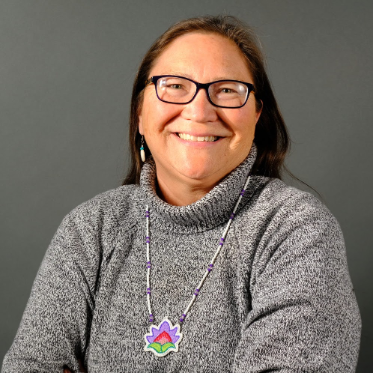
Rosalyn LaPier is an award winning Indigenous writer, environmental historian, and ethnobotanist. She works within Indigenous communities to revitalize traditional ecological knowledge (TEK), to address the growing climate crisis & environmental justice, and to strengthen public policy for Indigenous languages. Rosalyn is an enrolled member of the Blackfeet Tribe of Montana and Métis.
Posted on July 14, 2024 by Rebecca Bultman -
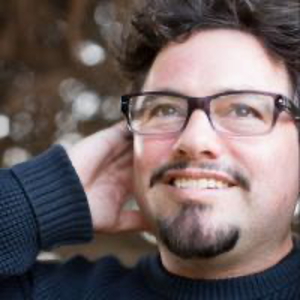
Matthew Burtner is an Alaskan-born composer and sound artist specializing in concert music, environmental sound art and interactive media. His work explores ecology, embodiment, and extended polymetric and noise-based systems. He composes systems of human-computer-environment interaction, finding an aesthetic between human expression and environmental system. Burtner currently splits his time between Alaska and Virginia where he is Professor of Composition and Computer Technologies (CCT) in the Department of Music at the University of Virginia. He is founder of the environmental arts non-profit organization, EcoSono (http://www.ecosono.org).
Posted on July 14, 2024 by Rebecca Bultman -
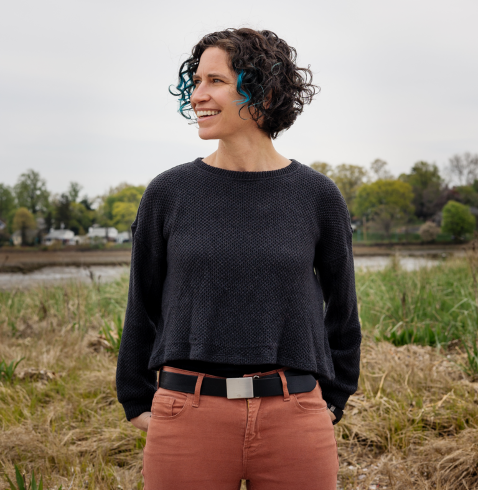
Mary-Jane Rubenstein is Professor of Religion and Science in Society at Wesleyan University, and is affiliated with the Philosophy Department and the Feminist, Gender, and Sexuality Studies Program. She holds a B.A. from Williams College, an M.Phil. from The University of Cambridge, and a Ph.D. in from Columbia University. Her research unearths the philosophies and histories of religion and science, especially in relation to cosmology, ecology, and space travel.
Posted on July 14, 2024 by Rebecca Bultman -

Dorothe Bach is the associate director of the Center for Teaching Excellence at the University of Virginia.
Posted on July 14, 2024 by Rebecca Bultman -
Carolyn Schuyler is the founder and director of Wildrock, a non-profit nature play and discovery center in the Blue Ridge foothills.
Posted on July 14, 2024 by Rebecca Bultman -
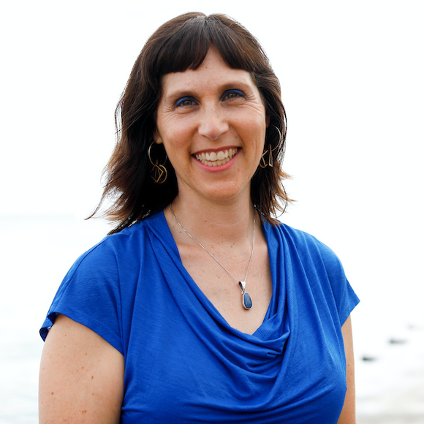
Rachel Havrelock is Professor of English at the University of Illinois at Chicago where she also directs The Freshwater Lab, an environmental humanities initiative focused on the North American Great Lakes and environmental justice.
Posted on July 14, 2024 by Rebecca Bultman -
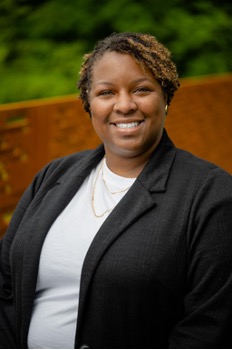
Niya Bates is a PhD candidate in History and African American Studies at Princeton University. She studies 19th and 20thcentury U.S. history, global environmentalism, and rural cultural landscapes. Her dissertation seeks to connect rural Black cultural landscapes in 19th century Virginia, Ohio, and Kentucky to global traditions of marronage, and to explore the 20thcentury legacies of those communities. Prior to coming to Princeton, Niya worked in public history preserving rural African American history in central Virginia. In that time, she also served as the director of African American history and the Getting Word African American Oral History Project at Monticello. Bates has been a guest on several podcasts and streaming platforms including Netflix’s High on the Hog, Oprah’s Book Club, Monty Don’s American Gardens, NPR’s All Things Considered, and Following Harriet. She earned a B.A. in African and African American Studies and an M.A. in Architectural History with a certificate in Historic Preservation from the University of Virginia. Niya was born and raised in central Virginia and is a descendant of families who were enslaved in that area.
Posted on July 14, 2024 by Rebecca Bultman -
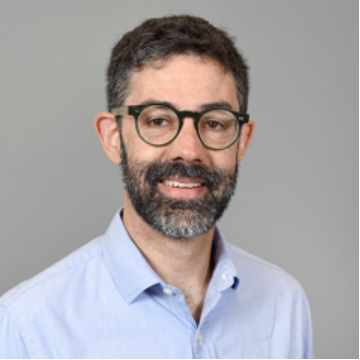
Evan Berry is an associate professor of environmental humanities in the School of History, Philosophy, and Religious Studies at Arizona State University. He has previously taught at American University and Lewis and Clark College. His research examines the relationship between religion and the public sphere in contemporary societies, with special attention to the way religious ideas and organizations are mobilized in response to climate change and other global environmental challenges. Berry is the author of “Devoted to Nature: The Religious Roots of American Environmentalism” (University of California Press, 2015), which traces the influence of Christian theology on the environmental movement in the United States. Berry recently spent a year as a Franklin Fellow at the State Department’s Office of Religion and Global Affairs as the American Academy of Religion’s inaugural Religion and International Relations Fellow. He also serves as the president elect of the International Society for the Study of Religion, Nature, and Culture and as the chair of the American Academy of Religion’s Committee for the Public Understanding of Religion.
Posted on July 14, 2024 by Rebecca Bultman -

Rosamond C. Rodman is an assistant professor of Religious Studies at Perimeter College, Georgia State University. My research interest in scriptures find me exploring the remarkable trajectory of the Second Amendment (of the US Constitution) and phenomenon of biblical place naming in the United States.
Posted on July 14, 2024 by Rebecca Bultman -
Najiyah is a Ph.D. student of Religion and Nature track at the University of Florida. She earned her Bachelor of Science in Agricultural Technology from Gadjah Mada University, Indonesia, specializing in post-harvest technology and food microbiology, and completed her M.A in Religious Studies with a special focus on Women and Sufism from the same university. Before coming to the University of Florida for her Ph.D. she served as a Public Education and Research Coordinator at the Center for Religious and Cross-cultural Studies (CRCS), Gadjah Mada University. She also advocates permaculture as an alternative way of living for a sustainable future and published two articles for Routledge; Islam and Ecology: Normative and Practices in the Routledge Handbook of Religion and Ecology (co-written with Dr. Zainal Abidin Bagir, 2016) and Religion and Disaster in Grounding Religion: A Field Guide to The Study of Religion and Ecology(2017). Her research interests include Religious Environmental Movement Organizations (REMO) especially in Muslim society, Permaculture and Agroecology movement, religion and conservation biology, masculinity and environment, and ecological thinking.
Posted on July 14, 2024 by Rebecca Bultman -

Muntazir Ali is a Ph.D. candidate in Religious Studies at Brown. He has an MSt. in Modern South Asian Studies from Oxford and a post-graduate diploma in Islamic Studies and Humanities from the Institute of Ismaili Studies, London. Muntazir’s dissertation “To Samarkand, Delhi, and Back to the Mountains: Space, Place, and Belonging in “greater Badakhshan,” ca. 1750-1969,” is a study of ideas about space, place, and religio-political identities in Chitral, a node in the historical “greater Badakhshan” region and a mountainous district in today’s north-western Pakistan, between ca. 1750 and 1969 C.E.
Posted on July 14, 2024 by Rebecca Bultman -

Mauro José Caraccioli is an associate professor of political science at Virginia Tech. His interests span the history of political thought, the politics of nature and natural history, Global Latin America, and theories of scholarly reflexivity in a time of late-capitalism. Caraccioli’s first book, Writing the New World: The Politics of Natural History in the Early Spanish Empire (University of Florida Press, 2021), examines the interplay of faith, nature, and empire in Colonial Spanish America and the natural histories produced by early modern Spanish missionaries to the New World.












Recent Comments